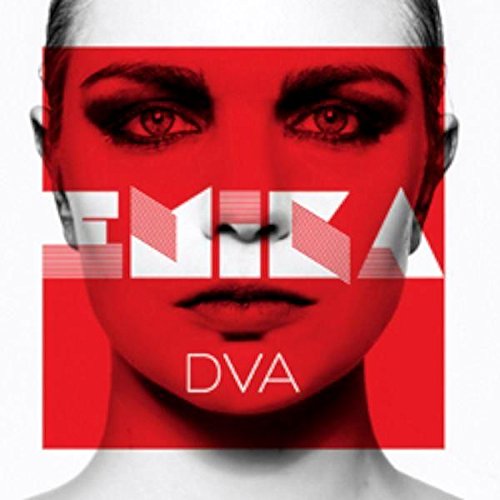
Emika
DVA
Release Date: Jun 10, 2013
Genre(s): Electronic, Trip-Hop, Electronica, Pop/Rock, Club/Dance, Dubstep
Record label: Ninja Tune
Music Critic Score
How the Music Critic Score works
Album Review: DVA by Emika
Fairly Good, Based on 8 Critics
Based on rating 7/10
English singer/songwriter/producer Ema Jolly seems determined to avoid the sophomore album slump with Dva. Her second full-length under the moniker Emika ("dva" being Czech for two) is a dense, sprawling affair. It's longer, more varied and more thoroughly composed than her eponymous 2011 debut, from the intro track with Czech soprano Michaela ?r?mová, through her delay-blanketed cover of "Wicked Game" by Chris Isaak, to the quietly epic, guitar-driven "Criminal Gift" conclusion.
Based on rating 7/10
On her second full-length, DVA, Emika works from the same ice-blue palette, but pulls back on the wobbling dubstep bass frequencies and trendy production to let her plaintive female vocals take center stage. Although a more fragile release, DVA balances the Berlin (by way of Bristol) artist's pop and experimental sides, just as her self-titled debut did. "Young Minds" and "Sing to Me" reinterpret the chilled, pulsing soundscapes of "Drop the Other" and "Double Edged," and the shimmering darkwave ballads "Fight for Your Right" and "Mouth to Mouth" resemble a cross-hatching of Grimes and the Knife.
Based on rating 3.5
Bristol-born, Berlin-based musician Emika has been operating on the margins of electronic music for some time, coming close to making a real breakthrough with the dark dubstep influenced pop of her well-regarded self-titled debut. Her second album Dva carries on the sound established on Emika. It sees the classically trained musician and producer operating from an even wider sonic palette to create a follow up with more colour and dynamics.
Based on rating 6/10
With her self-titled debut receiving massive plaudits worldwide—with critics describing her genre-bending mashup of underground pop, techno, and dubstep as “unique and exciting” and “varied and impressive”—Emika singled herself out as one to watch in the future. With support garnered from electronic luminaries such as Thom Yorke, on top of the tag of the “female James Blake” being bestowed upon her by Allmusic reviewer John O’Brien, great expectation has been lumped on to her second album, DVA. But has the Native Instruments sound designer lived up to the hype and the promise shown on the experimental, laptop-driven debut, a work that joined the dots between hypnotic German techno and the sub-heavy styling of London’s underground dubstep scene? The answer is probably not, but not for reason you might be expecting if you’ve read other reviews of this record.
Based on rating 6/10
There are a few stock music writer phrases that have become so cliché that to even mention them I know I’ll set the No Ripcord editors’ eyes rolling – “angular guitars”, “cathedrals of sound”, and “reverb-soaked” spring to mind, but few are more offensive than the phrase “sophomore slump”. However, even if most Brits will never use the word “sophomore” in their lives, the phrase has caught on because there’s a grain of truth in what it signifies: after a successful and distinctive debut album, crafting a follow-up can lead to something of a creative rut, and the dreaded second album so often shows signs of forced ambition and phony inspiration (as anyone who’s heard MGMT’s Congratulations or Guillemots’ Red will tell you). DVA is a textbook example of an artist revealing glimmers of what made her debut so special, but simply trying too hard to build upon its success.
Based on rating 3.0/5
Emika is a sound designer first and foremost. Her early solo work felt like a vehicle for her mastery of sound, particularly low-end. On her second full-length for Ninja Tune, Dva, she beefs up her songwriting, focusing on themes both political and personal. At times harking back to earlier tracks like "Drop The Other," at others exploring gloomy synth-pop, Dva is a varied record that dips in and out of Emika's comfort zone.You'll know what you're in for when you hear the operatic trills of "Hush Intro": Dva is a painfully serious record.
Based on rating 5.9/10
Whether intentionally or not, the release of Emika's self-titled debut album was well-timed. By 2011, dubstep's ascent to global notoriety was well underway: the U.S. was feeling the first ripples of Skrillex fever, while the U.K. had already seen chart success from Katy B and Magnetic Man. By this ….
Opinion: Fairly Good
Conjuring a world of late nights, romantic cruelty, and a dash of smoky hedonism, Ema Jolly's 2011 self-titled Ninja Tune debut marked her out as one to keep a close eye on. Even if its rush of ideas and clash of genres didn't quite gel, the combination of Jolly's arresting, paper-thin vocal delivery with dirty basslines, synth squalls and moody atmospherics strongly hinted at good things to come from the best musician ever to have spent a significant amount of time in Milton Keynes. DVA follows up by offering us two Emikas; moody prowler of the dancefloor and Serious Composer.

